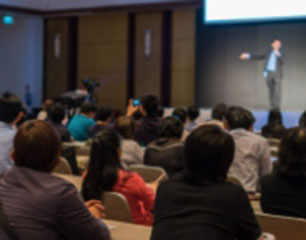Conference report (Aug, 2017):
Speaker(s):
Don Chalmers (University of Tasmania)
Tracy Evans Chan (National University of Singapore)
Glenn Cohen (Harvard Law School)
Henry Greely (Stanford Law School)
Alison Hall (PHG Foundation)
Stuart Hogarth (King’s College London)
Chih-Hsing Ho (Academia Sinica)
Yann Joly (McGill University)
Terry Kaan (University of Hong Kong)
Kazuto Kato (Osaka University)
Ock-Joo Kim (Seoul National University)
Bartha Knoppers (McGill University)
Kathy Liddell (University of Cambridge)
Colm McGrath (University of Cambridge)
Timo Minssen (University of Copenhagen)
Darrell P. Rowbottom (Lingnan University)
Jeffrey Skopek (University of Cambridge)
Janice Tsang (University of Hong Kong)
Ron Zimmern (PHG Foundation)
Videos:
Day 1 – click here
Day 2 – click here
Conference Website:
http://www.cmel.hku.hk/conference/pmconference/
Organizers:
The Centre for Medical Ethics & Law, The University of Hong Kong
The Centre for Law, Medicine and Life Sciences, The University of Cambridge
Precision medicine promises to revolutionize disease treatment and prevention by capitalizing on personal variation in factors including an individual’s genes, environment and lifestyle. Genomic and molecular data, for example, can be used to determine predispositions to particular diseases, predict the efficacy and safety of different treatment options, and develop drugs that are targeted to the fundamental biology of diseases rather than their clinical manifestations. In these and other ways, scientific and technological advances have the potential to bring about an unprecedented tailoring of medical treatment and health care to the individual characteristics of patients.
In order to realize the full potential of precision medicine, however, we must rethink components of the legal and ethical foundation on which it will be built. The reason for this is that science is more fluid than the law and ethics with which we hope to shape its development, and our legal and ethical frameworks were built with a very different generation of medical products and practices in mind. To identify and explore the answers to the challenges that arise from this gap, the world’s experts on these matters will convene at the University of Hong Kong on 7-8 April 2016.
The first day of the conference will be devoted to challenges in the implementation of precision medicine, which will be divided into two categories:
Session 1 will focus on challenges at the level of health care systems, including practical obstacles that arise from the varying systems that different nations build around health care, policy dilemmas caused by attempts to ration access to targeted drugs, and ethical challenges emerging from the changing landscape of health care delivery.
Keynote speaker: Professor Henry Greely (Stanford Law School; Director of the Center for Law and the Biosciences).
Session 2 will focus on challenges at the level of medical treatment, including questions about the creation and use of predictive analytics in allocating care, the nature and disclosure of individual risks in informed consent, and the breach of duties of confidentiality to protect the health of a patient’s family members.
Keynote speaker: Professor Glenn Cohen (Harvard Law School; Director of the Petrie-Flom Centre for Health Law Policy, Biotechnology, and Bioethics).
The second day of the conference will be devoted to challenges in the development of precision medicine, which will be divided into two categories:
Session 1 will focus on challenges at the level of foundational research, including how to enable research when the necessary biobanks are spread across the world, whether and when to return individual research results and incidental findings to research subjects, and the desirability of using “controlled access” approaches to data sharing.
Keynote speaker: Professor Bartha Knoppers (McGill University Faculty of Medicine; Director of the Centre of Genomics and Policy).
Session 2 will focus on challenges at the level of translation, including questions about the access and intellectual property policies of publicly funded biobanks, pathways and incentives for diagnostics development, and the benefits and risks of requiring greater clinical trials transparency.
Keynote speaker: Professor Don Chalmers (University of Tasmania Faculty of Law; Director of the Centre for Law and Genetics).
There will also be grand roundtable discussions for each of the four sessions, allowing for extended conversation and debate amongst the speakers and conference delegates.





